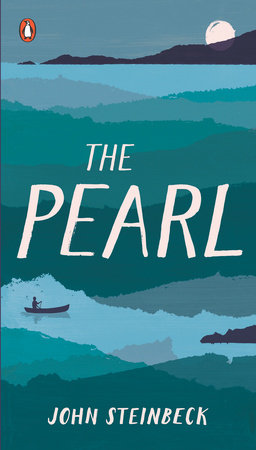(This review contains spoilers. A lot of them.)
You want to get rich quick? Think again, suggests John Steinbeck, in "The Pearl."
In this harsh parable, Steinbeck shows sudden wealth ruining the lives of a young Mexican couple named Kino and Juana. And I mean, ruining. In the end, their baby is dead, their house is burned down, many of their neighbors are out to get them, and Kino has had to kill four people defending his family.
It all starts when Kino, a poor and illiterate pearl diver in a small village in Baja California, finds the "Pearl of the World." The gigantic orb should make him and his family rich, but instead it only brings misery.
"The Pearl" is a short 1947 novella, with only 90 pages in my version. I finished it in two days and it could have been just one with a little more focus.
It is a smoothly engaging tale, starting right from the beginning when a scorpion bites Kino and Juana's baby. Steinbeck's descriptions are evocative. For instance:
"Kino deftly slipped the knife into the edge of shell. Through the knife he cold feel the muscle tighten hard. He worked the blade lever-wise and the closing muscle parted and the shell fell apart. The lip-like flesh writhed up and then subsided. Kino lifted the flesh, and there it lay, the great pearl, perfect as the moon."
In Steinbeck's telling, sudden wealth can not only upend the life of the recipient, but can disrupt the fabric of a community. Kino's pearl exposes greed and treachery among many of the villagers.
One small flaw: A doctor introduced early in the book as a seemingly important character curiously disappears in the latter half.
Also, I wonder about the message. Is Steinbeck suggesting that people should not attempt to improve their quality of life? If they do, is it inevitable that the hand of fate will bring misery and death into their lives?
I don't buy it. Kino hoped that his new wealth could one day send his son to school so the boy could learn to read. What's wrong with that?
